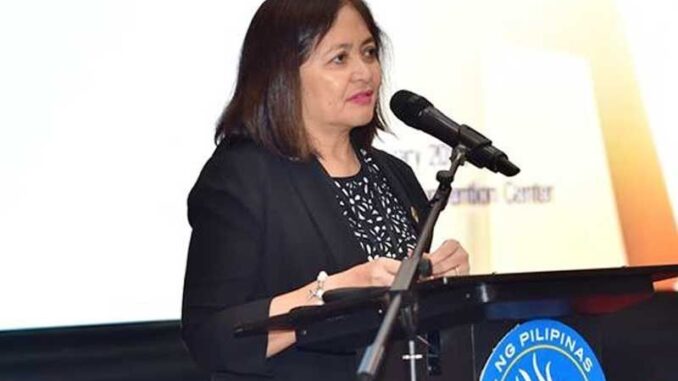
MANILA, Philippines — The Bangko Sentral ng Pilipinas (BSP) has released guidelines on the compensation and per diem of trustees, officers and employees of non-stock savings and loan associations (NSSLAs) to regulate and supervise their activities.
In Circular 1200 signed by BSP Deputy Governor Chuchi Fonacier on Sept. 6, the central bank said it added new sections to Chapter D of part one of the manual of regulations for non-bank financial institutions.
The guidelines were issued to lay down the minimum requirements and standards under which NSSLAs may operate, as well as prevent acts or practices that are prejudicial to members interests.
It also takes into account the relevant provisions of Republic Act 11232 or the revised Corporation Code of the Philippines and Sections 14 and 28 of RA 8367, or the revised NSSLA Act of 1997.
NSSLAs have one year from the effective date of the circular to amend any pertinent provisions of its by-laws and written policies to adhere to the guidelines.
According to the BSP, the board of trustees should establish a sound policy on compensation that can be used to attract and retain a highly qualified workforce and motivate current employees.
“This can be achieved through timely assessment of individual work performance and competencies based on set standards,” the BSP said, adding that the assessment should not merely include the number of loans made or the interest or fees collected by the employee.
The BSP said that increases in compensation should be computed based on the total compensation package. Any increase exceeding 10 percent per annum must receive a central bank approval.
Trustees and officers should not participate in discussions determining their own per diems or compensation.
The total accumulated compensation of all board members should not exceed 10 percent of the NSSLA’s net income before tax during the previous year.
In the absence of any provision in the bylaws fixing their compensation, the trustees shall not receive any compensation in their capacity as such, except for reasonable per diems, the BSP said.
Provided, however, that the majority of the members may grant trustees with compensation and approve the amount thereof at a regular or special meeting, it said.
The board of trustees should also be transparent to its members regarding all compensation and per diems received. Thus, policies should include measures that will monitor and control compliance.
To protect the funds of depositors and creditors, the Monetary Board may restrict the compensation to trustees and officers in exceptional cases, such as when the NSSLA is found to be engaging in practices considered prejudicial to the interest of its members.
The BSP may restrict compensation when the total compensation package of trustees and officers is not reasonable and when the NSSLA is in poor financial condition.
In the presence of any one or more of the circumstances mentioned, the Monetary Board may impose restrictions on the compensation of trustees and officers.
The BSP may also order the reduction of compensation to reasonable levels. The NSSLA may be subjected to penalties and sanctions as well.


Be the first to comment